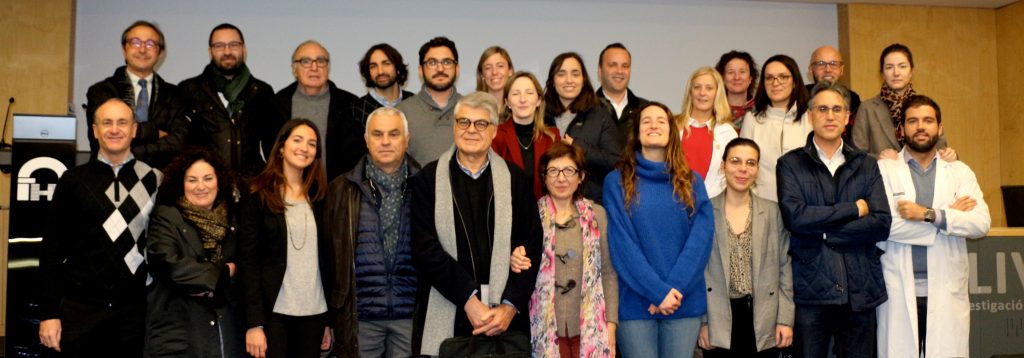20 May First study on the anaesthetic use of xenon gas in long-lived patients
⇒ INCLIVA’s Anesthesia Research Group participates in a clinical trial that records the incidence and degree of postoperative complications in long-lived patients operated for hip fracture..
⇒ The results of the multicentre trial have been published in the scientific journal British Journal of Anaesthesia (BJA).
Surgical complications are frequent in elderly patients and increase when they need emergency surgery, since, in addition to the age and previous illnesses of the patient, the emergency situation does not allow for pre-anaesthetic follow-up, in which medicines can be withdrawn in advance, fragility, etc., is assessed. This study included 256 patients, aged 75 years and older, who underwent urgent general surgery within 48 hours of their hip fracture. The researchers recorded postoperative complications: the incidence of postoperative delusions (as the primary objective), but also the number and severity of organ failure, adverse events and mortality. This is a multi-centre trial in which thirteen university tertiary hospitals from six European countries (France, Belgium, Germany, Italy, United Kingdom and Spain) have collaborated, with the Hospital Clínico de Valencia being the centre that recruited the largest number of patients. In the study, two anaesthesia maintenance agents were used: the new xenon noble gas or the conventional sevoflurane gas. In both types of anesthesia, the incidence of delusions was similar. However, in the group of patients whose anaesthetic use was based on xenon gas, there were fewer postoperative organ failures, less serious complications and no mortality, which could be interpreted as an effect of xenon as an organ protector, according to the study.“ The trial has shown the potential benefits of xenon anaesthesia in long-lived patients requiring emergency surgery. This protective effect is due to the properties of xenon gas, which allows inhalation sedation, avoiding intravenous administration, and unlike other conventional anesthetics, xenon gas is not very soluble in blood and when it is not administered, it is naturally eliminated from the body in a few minutes, thus improving the patient’s awakening and functional recovery», points out Professor Javier Belda, head of the Anesthesiology Service of the University Clinical Hospital of Valencia.
The authors emphasise the need for further studies to assess the potential benefits of xenon gas-based general anaesthesia, particularly for older patients at higher risk of postoperative complications.Reducing complications after surgery, a priority for INCLIVA’s Anesthesia research group
One of the priorities of the Anesthesiology, Reanimation and Pain Therapy Service of the University Hospital of Valencia is the research of anaesthetic agents composed of noble natural gases, such as xenon, which contribute to reducing complications after surgery and to eliminating the harmful effects of toxicity and environmental pollution. The researchers who participated in the study, Beatriz Garrigues, José Antonio Carbonell, Marisa Luisa García-Pérez, Francisco J. Belda, Marina Soro, C. Ferrando, Irene León, J. Hernández, collaborate with international groups in this line of research. Research Group in Anesthesia of the University Clinical Hospital of Valencia, INCLIVA-UV.
Research Group in Anesthesia of the University Clinical Hospital of Valencia, INCLIVA-UV.

